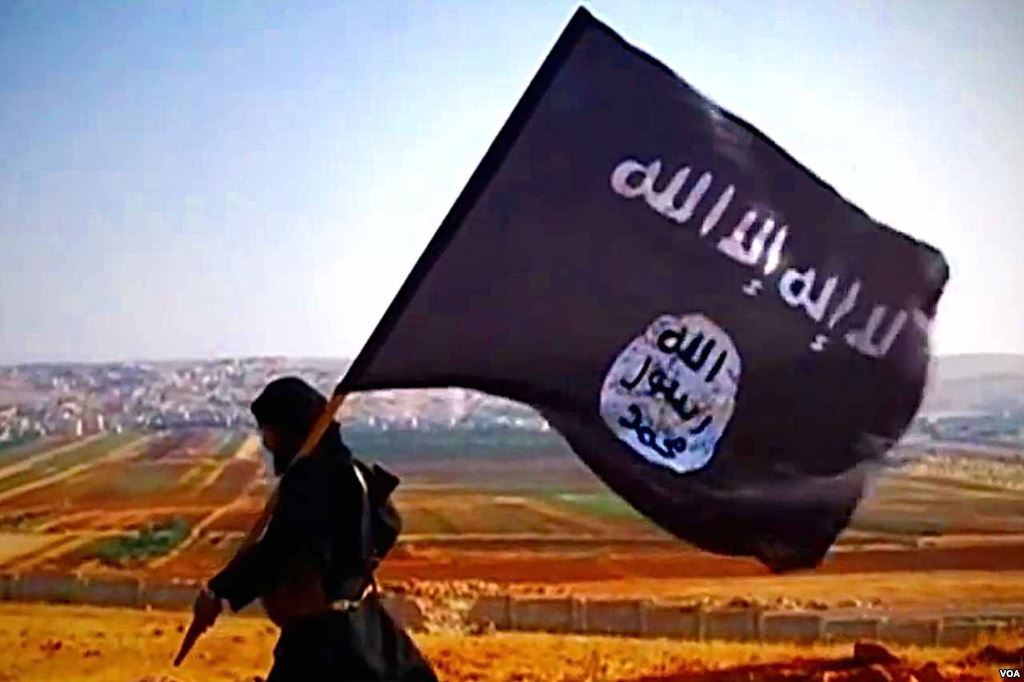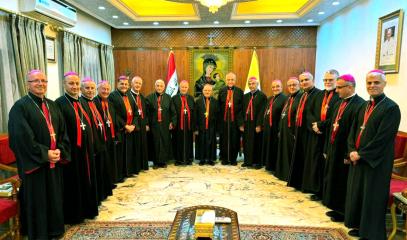Iraq, the return of Isis in a crescendo of attacks. Card. Sako meets the premier
In the first six months of the year, the Islamic State has already carried out 153 operations and is reportedly trying to ‘rebuild itself’. The jihadists' strength in acting and carrying out their objectives is worrying. The prime minister praises the ‘diversity’ represented by Christians, who are a ‘factor of stability’. The Chaldean Synod closes with an appeal for unity among Churches and belonging to the land.
Baghdad (AsiaNews) - A crescendo of attacks and an increased presence on the ground, suggesting an attempt to ‘reconstitute’ itself as a group in order to strike back and conquer more and more ground. The United States is sounding the alarm to the government in Baghdad, faced with the danger of the return of the Islamic State to Iraq and Syria, in the tenth anniversary of the rise of the jihadist movement that came to control half of the two countries between 2014 and 2016, at the peak of its expansion.
According to reports from the US Central Command (Centcom), Isis has already claimed 153 attacks in Iraq and Syria in the first six months of 2024, suggesting that it is ‘attempting to reconstitute itself after several years of depletion in its capabilities’ to strike. Compared to the previous year, the number of operations reportedly ‘doubled’ with an increased ability to strike, although there are uncertainties about the actual numbers.
The apparent resurgence of Daesh [Arabic acronym for Islamic State] has been revived several times in the years since the military defeat, but what is worrying today is the strength the group seems to have in acting and carrying out its objectives. Added to this is the general amnesty of the Kurdish militias - supported by the United States - in north-east Syria, which has led to the release of suspected jihadists or Isis affiliates.
In the Kurdish forces' detention facilities in north-eastern Syria, some 10,000 former fighters are incarcerated. Among them, those who fought against the Kurdish-led Syrian Democratic Forces (SDF) in the past or carried out attacks with explosives that killed people are not eligible for amnesty. Interviewed by theAssociated Press (Ap), legal expert Khaled Jabr reported that the SDF amnesty will include some 600 Syrian citizens detained on charges of terrorism and links to the Islamic State, who could return to action once free. Although the most dangerous militiamen may not benefit from the measure, the fear remains that a mass release could feed the group's ranks again.
Yesterday, meanwhile, Iraqi Prime Minister Mohammed Shiaa al-Sudani received the Baghdad Patriarch of the Chaldeans, Card. Louis Raphael Sako, and a delegation of bishops attending the local Church Synod, which ends today. During the meeting, the head of the government [who in recent months has shown support and solidarity with the Chaldean primate in his clash with the president over the withdrawal of the decree and the move to Erbil in protest] emphasised the value of ‘diversity’ which is ‘a factor of stability’. He then expressed words of praise for Christians, who have been able to face ‘tragedy and terrorism’ and reject attempts to ‘cause divisions’ among Iraqis. It is necessary, the PM concluded, that ‘everyone practise their rites and worship freely’ and that Iraq's enormous resources be used ‘to ensure stability’ throughout the region, from Gaza to Syria to Lebanon where there is conflict and violence.
Today, finally, the Chaldean Church Synod scheduled to take place in Baghdad from 15 July closes with a final declaration signed by the Chaldean Patriarch. In the note, sent to AsiaNews for information, the cardinal expresses his ‘gratitude’ to the prime minister for the ‘decree’ that ‘confirms’ him as head of the Chaldean Church even for Iraqi institutions, putting an end to months of tension with the presidency of the Republic. This is coupled with the hope of a joint effort towards ‘peace and stability’ by applying the law, restoring national unity and strengthening citizenship.
In the face of the ‘agony’ of Christians, Card. Sako, it is necessary to assert their rights ‘with equal representation and employment’ and opposing the ‘seizure’ of property by ‘the exclusiveness of any political party’. Widening his gaze to the war in the Holy Land (between Israel and Hamas) and its consequences for the region, the primate joined the synod's ‘great concern’ and confirmed that the ‘best solution’ is to ‘establish two neighbouring states living in peace, security, stability and mutual trust’.
Finally, the cardinal closed his reflection with a thought on the future of the Christians of the East. "With regard to this issue, the synod bishops renew Patriarch Sako's call for unity and solidarity. The main thing that should unite us is our faith and our land. Unity is our strength and salvation. Despite the wounds, we continue to love our countries and our citizens, and we would like to cooperate with them in spreading a culture of coexistence, respecting the differences of others and strengthening hope, within a fair and civilised society'.
19/10/2021 09:59
11/08/2017 11:32








.png)










